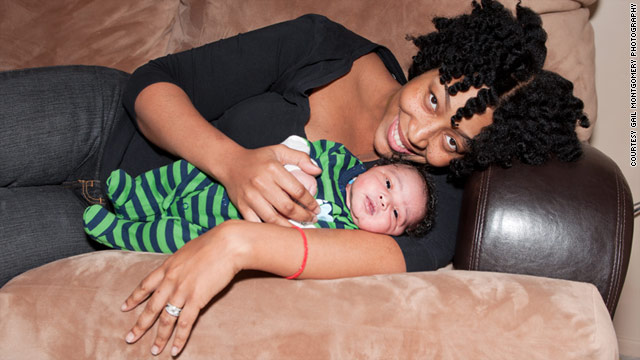September 3rd, 2011 by Linda Burke-Galloway, M.D. in Health Tips
No Comments »

 At some point during a pregnancy, the topic of labor induction might emerge. Inducing labor means that contractions are being started before a patient begins labor naturally or without any external influence. Elective inductions of labor has doubled in the past 20 years according to medical literature. Early term inductions of labor that begin between 37 and 38 weeks have quadrupled from 2 to 8% within the U.S. Inductions are usually done when the risk of maintaining the pregnancy poses a threat to the mother or fetus. However, more and more patients have requested to have an induction of labor based on personal preference. Early elective inductions have recently been criticized because of an association with an increase in fetal and newborn complications as well as an increase in the C. Section rate.
At some point during a pregnancy, the topic of labor induction might emerge. Inducing labor means that contractions are being started before a patient begins labor naturally or without any external influence. Elective inductions of labor has doubled in the past 20 years according to medical literature. Early term inductions of labor that begin between 37 and 38 weeks have quadrupled from 2 to 8% within the U.S. Inductions are usually done when the risk of maintaining the pregnancy poses a threat to the mother or fetus. However, more and more patients have requested to have an induction of labor based on personal preference. Early elective inductions have recently been criticized because of an association with an increase in fetal and newborn complications as well as an increase in the C. Section rate.
The Bishop Score was developed in the 1960’s by Dr. Edward Bishop as a means of evaluating the cervix to determine if the patient would successfully have a vaginal delivery. Based on Bishop’s research, he determined that women who were pregnant for the first time and women who had an “unfavorable” cervix were Read more »
*This blog post was originally published at Dr. Linda Burke-Galloway*
December 21st, 2010 by Michael Sevilla, M.D. in News, Opinion
No Comments »

 Every once I awhile a story catches my eye as I scan the news websites. There was one this morning on CNN with this catchy title: “Mom Defies Doctor, Has Baby Her Way.” The article describes a story where a mother was going to have her fourth baby. Her previous three were born via C-section. Mom did not want another C-section done, and “defied” her doctor’s order for the procedure. “You’re being irresponsible,” the patient was told.
Every once I awhile a story catches my eye as I scan the news websites. There was one this morning on CNN with this catchy title: “Mom Defies Doctor, Has Baby Her Way.” The article describes a story where a mother was going to have her fourth baby. Her previous three were born via C-section. Mom did not want another C-section done, and “defied” her doctor’s order for the procedure. “You’re being irresponsible,” the patient was told.
The middle of the article talks about the current thinking and statement of the American College of Obstetrics and Gynecology saying that “it’s reasonable to consider allowing women who’ve had two C-sections to try to have a vaginal delivery.” Of course, there’s risks with proceeding with a vaginal delivery and risks of another C-section.
What’s always interesting to me are the comments following the article. I applaud the physicians who are fighting back the anti-physician sentiment and those who are pushing (no pun intended) the only home birth agenda.
In the article, this person is being held up as a hero — as someone who defied the paternalistic medical establishment and did it her way. Good for her — or is it? What if that 0.4-0.9 percent possibility of severe complication occurred and there was a problem with mom and/or the baby? What would happen then? Read more »
*This blog post was originally published at Doctor Anonymous*
 At some point during a pregnancy, the topic of labor induction might emerge. Inducing labor means that contractions are being started before a patient begins labor naturally or without any external influence. Elective inductions of labor has doubled in the past 20 years according to medical literature. Early term inductions of labor that begin between 37 and 38 weeks have quadrupled from 2 to 8% within the U.S. Inductions are usually done when the risk of maintaining the pregnancy poses a threat to the mother or fetus. However, more and more patients have requested to have an induction of labor based on personal preference. Early elective inductions have recently been criticized because of an association with an increase in fetal and newborn complications as well as an increase in the C. Section rate.
At some point during a pregnancy, the topic of labor induction might emerge. Inducing labor means that contractions are being started before a patient begins labor naturally or without any external influence. Elective inductions of labor has doubled in the past 20 years according to medical literature. Early term inductions of labor that begin between 37 and 38 weeks have quadrupled from 2 to 8% within the U.S. Inductions are usually done when the risk of maintaining the pregnancy poses a threat to the mother or fetus. However, more and more patients have requested to have an induction of labor based on personal preference. Early elective inductions have recently been criticized because of an association with an increase in fetal and newborn complications as well as an increase in the C. Section rate.



 Every once I awhile a story catches my eye as I scan the news websites. There was one this morning on CNN with this catchy title: “
Every once I awhile a story catches my eye as I scan the news websites. There was one this morning on CNN with this catchy title: “







